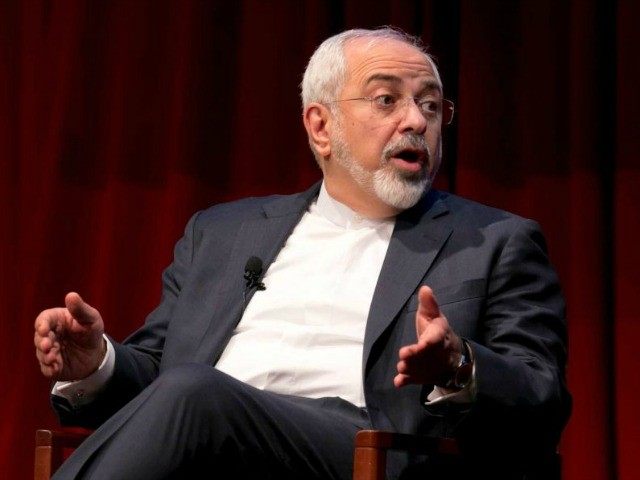Iran’s Foreign Minister, Mohammad Javad Zarif, cranked up the war of words between his country and Saudi Arabia in a Wednesday op-ed for the New York Times, accusing the Saudis of using their “tainted petrodollars” to spread the “death cult” of Wahhabi Islam:
Over the past three decades, Riyadh has spent tens of billions of dollars exporting Wahhabism through thousands of mosques and madrasas across the world. From Asia to Africa, from Europe to the Americas, this theological perversion has wrought havoc. As one former extremist in Kosovo told The Times, “The Saudis completely changed Islam here with their money.”
Though it has attracted only a minute proportion of Muslims, Wahhabism has been devastating in its impact. Virtually every terrorist group abusing the name of Islam — from Al Qaeda and its offshoots in Syria to Boko Haram in Nigeria — has been inspired by this death cult.
So far, the Saudis have succeeded in inducing their allies to go along with their folly, whether in Syria or Yemen, by playing the “Iran card.” That will surely change, as the realization grows that Riyadh’s persistent sponsorship of extremism repudiates its claim to be a force for stability.
The world cannot afford to sit by and witness Wahhabists targeting not only Christians, Jews and Shiites but also Sunnis. With a large section of the Middle East in turmoil, there is a grave danger that the few remaining pockets of stability will be undermined by this clash of Wahhabism and mainstream Sunni Islam.
The Iranian minister argued that the rivalry between Sunni and Shiite Muslims was nothing compared to “the reality that the worst bloodshed in the region is caused by Wahhabists fighting fellow Arabs and murdering fellow Sunnis.”
“While the 2003 American-led invasion of Iraq set in motion the fighting we see today, the key driver of violence has been this extremist ideology promoted by Saudi Arabia — even if it was invisible to Western eyes until the tragedy of 9/11,” Zarif said.
Of course, he portrayed Iran as a stalwart opponent of such extremism. He allowed that not all of the “violence committed in the name of Islam can be traced to Wahhabism” but didn’t have much to say about where other tracings might lead.
He was, however, generous enough to invite the Saudis to be “part of the solution” by putting aside “the rhetoric of blame and fear,” so they can “join hands with the rest of the community of nations to eliminate the scourge of terrorism and violence that threatens us all.”
The Express Tribune found it remarkable that “Iran is now settling scores with Saudi Arabia on the New York Times” and collected a number of skeptical responses from social media — ranging from snark about pots calling the kettle black, to agreement that, whatever one thinks of Iran, Zarif is not wrong about the menace of Wahabbism.
More such responses were collected by Middle East Eye, focusing on Iran’s support for al-Qaeda’s Abu Musab al-Zarqawi, with a reminder that the United States Treasury sanctioned three al-Qaeda leaders living in Iran just over a month ago.
Meanwhile, Saudi outlet al-Arabiya reports some blowback against Iran’s government from Iranians visiting Saudi Arabia for the Hajj pilgrimage. (These are Iranians who traveled to the cities of Mecca and Medina from other countries, including the United States, since Iran is officially not participating in the Hajj this year.)
These Iranian pilgrims accused Ayatollah Khamenei of making “false claims and provocations against Saudi Arabia.”
Although Iran has accused the Saudis of taking insufficient measures to ensure the safety and comfort of visitors, one Iranian said he sees “new projects implemented by the government for the welfare of pilgrims” every time he visits Saudi Arabia.
Another praised the Saudis’ efforts to “make Hajj a comfortable journey,” and said they are “enough to reply to the false accusations made against it by the Iranian government.”
“The government of the King and the Saudi people are generous with every pilgrim from any part of the world,” said Iranian journalist Jamal Boukarim, visiting from Kurdistan.
He said fabricated Iranian complaints against Saudi Arabia are “a flagrant attempt to distract its people from their deteriorating economic conditions.”

COMMENTS
Please let us know if you're having issues with commenting.